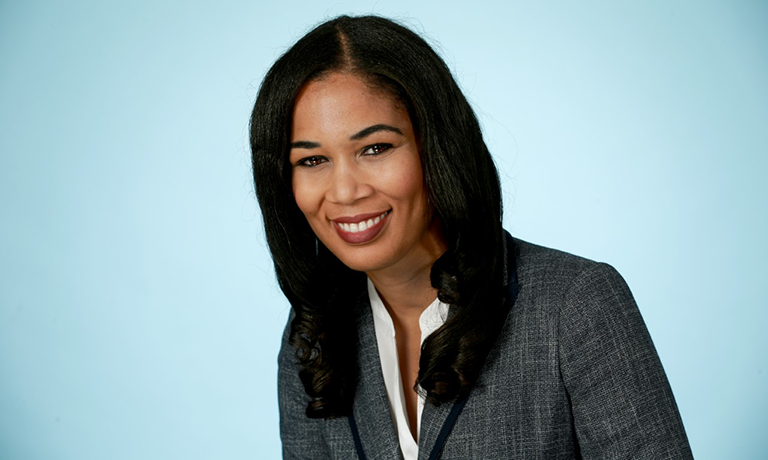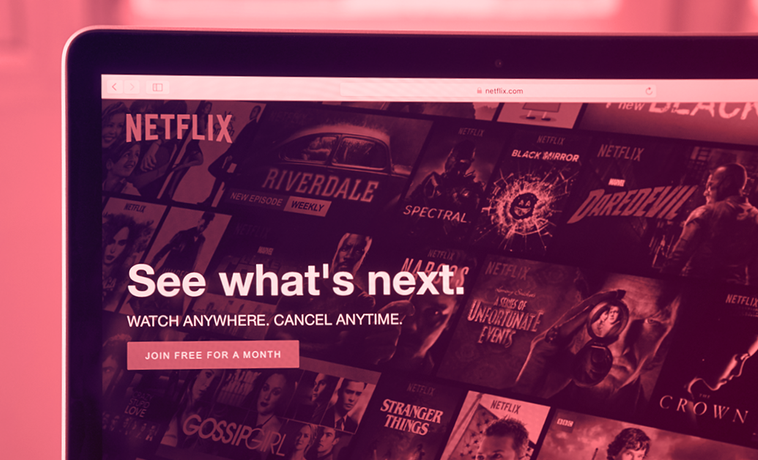Resilience Theme for Grad Student Convocation Speaker

Kimbriell Kelly, Washington, D.C. bureau chief for the Los Angeles Times, will give the convocation address for COM graduate students on May 20, 2022.
Kimbriell Kelly, this year’s speaker for the College of Communication graduate student convocation, built her reputation as a reporter delivering prize-winning investigations.
At the Chicago Reporter, her investigation into Countrywide Financial’s subprime mortgage lending led to the nation’s largest fair-lending settlement. At the Washington Post, she was part of a team investigating officer-involved shootings that won a Pulitzer Prize for national reporting in 2016. Three years later, she was a Pulitzer finalist for an examination of murder in America’s largest cities.
Kelly (’98) moved to the Los Angeles Times, and there edited the newspaper’s coverage of immigration issues that led to another Pulitzer. In 2020, she was named Washington D.C. bureau chief.
This month she returns to Boston University, where she earned her Master of Science in Journalism, to address COM master’s candidates on May 20 at Walter Brown Arena. COM caught up with Kelly before her visit.
Q&A
With Kimbriell Kelly
COM: What do you plan to say to the Class of 2022?
Kelly: I won’t tell you too much, but I will say that it will definitely be a discussion about resilience. This particular class has been through a lot, learning through COVID, particularly.
Often times, students are juggling jobs, whether it’s part-time or full-time, and that’s a lot, adding a pandemic on top of that and the uncertainty about the economy.
So I will definitely center around resilience and also about the future. I think a lot of people are scared and anxious about what lies ahead after graduation day. Can I get a job? Will I be able to sustain this career? I’ll touch on all that.
COM: Most of your readers are in southern California. Is there a West Coast approach to covering Washington, D.C.?
Kelly: Absolutely. Here in Washington, a lot of the publications are obviously centered on the Beltway right in Washington, D.C. We like to center our coverage around more than just a national audience, but one that’s interested in either California or issues of the West.
About a year ago, we launched a series called the United States of California, which takes a look at how California and the policies there really impact the nation. So we do the same with our coverage out of Washington, D.C.
We may write about things like student loans, which is of national interest but, guess what? A lot of the student loans are largely centered in states like California, and so that’s the story that’s interesting to our audience.
But also we have a unique advantage, being a California paper writing about things that are of interest to the nation – issues around the environment, Silicon Valley and technology, those are things that are our sweet spot. I love writing about not just politics but policy, and so that’s a great fit for our publication.
COM: Your background is in investigations. Is that your focus now as the Washington bureau chief?
Kelly: I’m with people who write about policy and politics and not necessarily investigations. We do have one investigative reporter per se. I do have a philosophy that accountability is central to what many reporters do on a day-to-day basis.
As we see what some may consider the crumbling of democracy, or the challenges that democracy faces today, we see the greater need for the First Amendment and to shine a light and create some transparency around what is hidden in government. I think that’s investigative reporting or accountability reporting that is not just dedicated to a few people who might sit on an investigative unit.
COM: Washington is riven by a level of partisanship that some say we haven’t seen since Civil War times. How does this impact the reporting?
Kelly: I would say not only how that impacts the reporting, but how does that impact the reporters.
You know with a lot of reporting, there are people with dueling sides and interests, and so you have to vet that information very carefully. Fact checkers are in high demand in the recent years!
Secondly, what you’re seeing are attacks (on) press freedoms. You’re seeing situations like we had recently in LA where you have a police official who’s actually showing the photo of a reporter and saying that they might be under investigation for essentially doing their job.
You have fewer journalists who are willing and able to do that kind of work, so it’s a resource issue as well. And then you have the safety of your journalists that you have to think about, and the protections that are guaranteed to us in the First Amendment. Those are some of the challenges that we face currently, and I think that we’re going to continue to face going forward, at least in the most immediate future.
COM: You and your team have covered immigration closely. Where is this story heading next?
Kelly: I think that there’s a lot there. During the Trump administration, (the story) was around the border, border protection arguments, remain-in-Mexico asylum seekers, returning people to their countries of origin, people who have gone through extreme situations.
Going forward, it is more about migration and what’s happening in the interior of the country. You know, they’re living their lives, they’ve been here for decades, and so being able to really report on the quality and what’s happening in the lives of the families here in the United States, so it’s less so about border immigration.
COM: How do you divide your bureau’s resources between covering policy and covering politics?
Kelly: It’s an adrenaline rush, you know. I get it. It’s election night. You’re not sure who’s gonna win. You’re waiting for the polls to come in. You’re at a news conference. You’re writing the news and you’re trying to get it out fast. Hey, I’m a competitor and so I want to be first, to get the scoop.
But I think that there is that second beat – not only what is the news of the day, but how does it impact people, the policy implications, for how people are living their day-to-day lives.
I don’t want to have reporters who write just about what Biden announced around student loans, but more how does that impact people who have debt. How does that impact people going forward, getting homes in the future, their credit scores. And so you have the politics and then you have the policy.
During the Trump years, it was easier to focus a lot on the politics, right? You woke up in the morning, and there were Tweets that you had to write about. Now things are different in the Biden administration. It’s easier to have a balance because you have news that’s coming out that you have to report on – the horse race – but then you have to explain it to your audience. And that’s the sweet spot.
I say to my reporters, there are three buckets. There’s a breaking news, there’s your enterprise stories, and then there’s your accountability-slash-investigative. So our politics and policy works somehow fit into one of those three.
COM: What’s the skill set the Times seeks most in young reporters entering the field?
Kelly: There’s a lot that I look for but most importantly: creativity, ambition, and skill, obviously.
When I came into journalism, the focus was on print publications. We see right now, newspapers are disappearing, print publications are dwindling. So you can’t look at this industry as “I’m going to work for a newspaper” but it’s “I’m going to work for a news organization.”
So your reporting should be somewhat platform agnostic. You can have a scoop that appears in a newsletter, on a podcast, a YouTube video. I encourage people to be open and flexible about where your reporting occurs, but also to create those streams.
I have a philosophy called proof of concept. I give reporters up to 12 weeks to give me a proof of concept. If I green light it, i’ll give you up to 12 weeks to work on it. If you’re going to fail at it, I want you to fail faster, so we can learn from those and see if we can we retool this idea and make it better. We should be encouraged to take the initiative and try things to see if they work, and I think that that’s what’s necessary to help our industry grow in the future.
COM: Besides our winters, what do you miss about Boston?
Kelly: The seafood! I must admit, I didn’t go to a bunch of restaurants when I was there. I was a poor college student.
But I remember being very excited when, after graduation, I went for dinner at the Top of the Hub restaurant, and I just remember thinking “Oh, I really love this clam chowder and the seafood.” I don’t know if the food there was actually good or not, but it was to my 22-year-old self.
This interview has been condensed for space and clarity.


